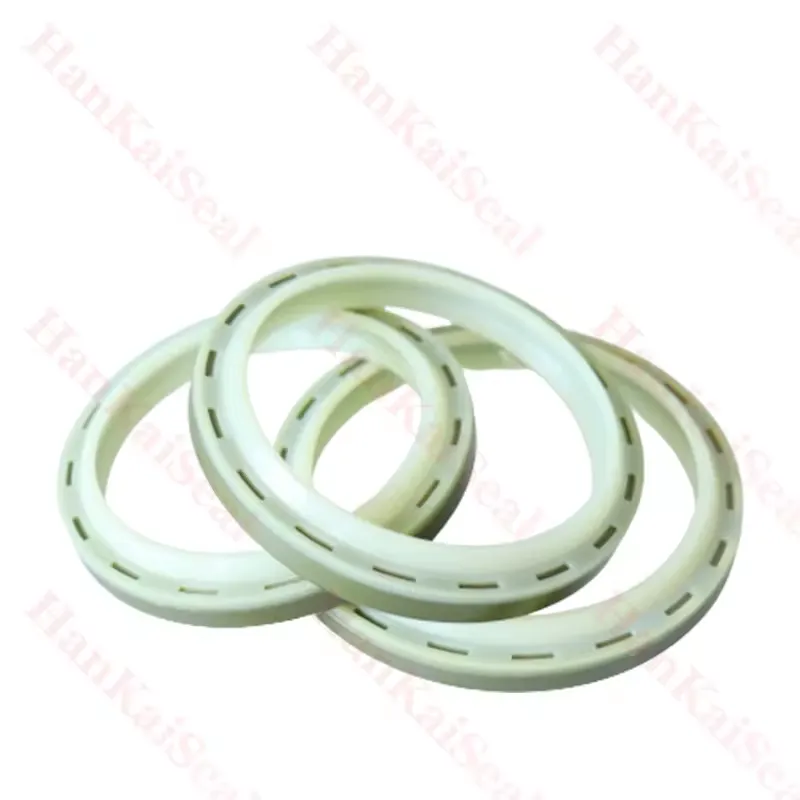Nov . 27, 2024 21:26 Back to list
High-Performance Oil Seal 80x100x10mm for Efficient Sealing Solutions
Understanding the 80x100x10 Oil Seal A Comprehensive Guide
An oil seal, also known as a radial seal, is a crucial component in many mechanical systems, specifically designed to prevent oil and other fluids from leaking out of a housing or enclosure. The designation '80x100x10 ' refers to specific dimensions and characteristics of one such oil seal, which can be found in various industrial applications, automotive systems, and machinery. In this article, we'll delve into the details of this oil seal, exploring its dimensions, functions, materials, and applications.
Dimensions Explained
The dimensions '80x100x10' signify the size of the oil seal, where
- 80mm is the inner diameter (ID) of the seal. - 100mm is the outer diameter (OD). - 10mm represents the thickness of the seal.
These measurements are critical as they determine how the seal fits within a specific application. An improper fit can lead to fluid leakage, which can compromise the efficiency and durability of machinery.
Functionality of Oil Seals
The primary function of an oil seal is to retain lubricants within a machine while preventing contaminants, such as dirt and debris, from entering the lubrication system. This is vital in prolonging the life of mechanical components, reducing friction, and ensuring smooth operation. The design of the oil seal allows it to function under various conditions, including high speeds, different temperatures, and in the presence of different lubrication types.
Material Composition
Oil seals are made from various materials, each selected for specific applications based on their properties. Common materials include
- Nitrile Rubber (NBR) This is the most common material for oil seals due to its excellent resistance to petroleum-based oils and good flexibility. NBR seals can also withstand a temperature range of -40°C to 100°C.
- Fluorocarbon Rubber (FKM) Known for its resistance to high temperatures and aggressive chemicals, FKM is often used in more demanding applications where NBR may not suffice.
80x100x10 oil seal

- Polyurethane This material offers robust durability and flexibility, making it suitable for dynamic applications where the oil seal may be subjected to movement.
- Silicone While not as commonly used in oil seals, silicone can be effective in specific situations where extreme temperature stability is necessary.
Application Areas
The 80x100x10 oil seal finds use in various applications across multiple industries
- Automotive Industry It is commonly employed in engine components, transmission systems, and differential housings to prevent oil leaks and maintain lubrication.
- Industrial Machinery Many machines rely on oil seals to keep lubricants contained and to protect internal components from dirt and moisture, which can damage the system.
- Aerospace In aviation, oil seals are crucial for ensuring the reliability of systems under extreme conditions.
- Agricultural Equipment Tractors and other agricultural machinery frequently utilize oil seals to maintain optimal function and prevent fluid loss.
Maintenance and Replacement
To ensure optimal performance, it is essential to regularly inspect oil seals for signs of wear or damage. Over time, factors such as exposure to extreme temperatures, chemicals, or physical abrasions can degrade the seal, leading to leaks. If an oil seal appears compromised, it is advisable to replace it promptly to avoid further damage to the machinery.
Conclusion
The 80x100x10 oil seal is a vital component in many mechanical systems, serving to keep lubricants contained and protect against contaminants. Understanding its dimensions, functions, and materials is essential for anyone involved in maintenance or manufacturing processes. By selecting the right oil seal for your application and monitoring its condition, you can ensure the longevity and efficiency of your machinery, contributing to smoother operations and reduced downtime. Thus, investing in quality oil seals, like the 80x100x10, is an often overlooked but critical aspect of mechanical engineering and maintenance practices.
-
TCN Oil Seal Metal Ring Reinforcement for Heavy Machinery
NewsJul.25,2025
-
Rotary Lip Seal Spring-Loaded Design for High-Speed Applications
NewsJul.25,2025
-
Hydraulic Cylinder Seals Polyurethane Material for High-Impact Jobs
NewsJul.25,2025
-
High Pressure Oil Seal Polyurethane Coating Wear Resistance
NewsJul.25,2025
-
Dust Proof Seal Double Lip Design for Construction Equipment
NewsJul.25,2025
-
Hub Seal Polyurethane Wear Resistance in Agricultural Vehicles
NewsJul.25,2025
-
The Trans-formative Journey of Wheel Hub Oil Seals
NewsJun.06,2025
Products categories
















